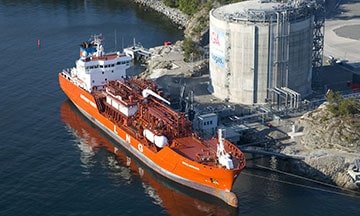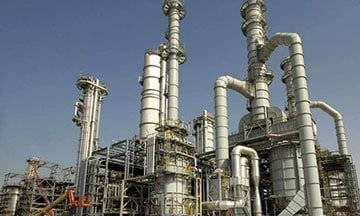Advanced Energy Market Analysis, Deregulation, Price, Intelligence and Liberalisation Course
| Date | Venue | Duration | Fees | |
|---|---|---|---|---|
| 06 May - 10 May, 2024 | Dubai | 5 Days | $4750 | Register |
| 24 Jun - 28 Jun, 2024 | Windhoek | 5 Days | $4950 | Register |
| 24 Jun - 28 Jun, 2024 | Dubai | 5 Days | $4750 | Register |
| 08 Jul - 12 Jul, 2024 | Dubai | 5 Days | $4750 | Register |
| 05 Aug - 16 Aug, 2024 | Kampala | 10 Days | $9150 | Register |
| 19 Aug - 23 Aug, 2024 | Dubai | 5 Days | $4750 | Register |
| 23 Sep - 27 Sep, 2024 | London | 5 Days | $5695 | Register |
| 30 Sep - 04 Oct, 2024 | Dubai | 5 Days | $4750 | Register |
| 07 Oct - 11 Oct, 2024 | Dubai | 5 Days | $4750 | Register |
| 13 Oct - 17 Oct, 2024 | Doha | 5 Days | $4950 | Register |
| 25 Nov - 29 Nov, 2024 | Dubai | 5 Days | $4750 | Register |
| 09 Dec - 13 Dec, 2024 | Houston | 5 Days | $5695 | Register |
| 16 Dec - 20 Dec, 2024 | Dubai | 5 Days | $4750 | Register |
Course Overview
The energy market contributes significantly to the economy of any nation and our daily lives. Energy markets are economic arrangements that deal specifically with the trade, provision, and consumption of energy, such as natural gas or electrical energy.
Does deregulation lower prices?
Energy market analysis involves developing models of the energy market to identify determinants of market conditions and trends such as changes in supply and demand and to address challenges in the energy trade
Energy deregulation is the restructuring of the existing energy market to prevent energy monopolies by encouraging competition, hence, allowing energy users to choose among multiple energy providers based on rates that suit their preferences.
What is price liberalization?
Pricing in energy markets is determined by a spectrum of elements such as supply and demand, availability of effective storage means, global market trends, and government regulation.
Energy intelligence involves gathering data to monitor, analyse and interpret the trends and developments in the energy industry to develop solutions and make projections to handle future limitations. Energy Liberalisation refers to the removal of government regulations and restrictions on the energy market to create more competitive markets and lower prices by privatisation.
This Zoe training course will expose budding energy professionals to comprehensive practical and theoretical knowledge about Energy Market Analysis, Deregulation, Price, Intelligence, and Liberalisation. Upon finalising this course, you will be able to succinctly address questions, problems, or challenges that border on the nature of energy markets and their operation.
Course Objectives
The crucial objective of this course is to empower experts to:
- Understand the basics, operation, design, and functioning of the energy market and the economic principles underlying it
- Become experts in energy market analysis and energy market intelligence
- Broadly estimate energy markets and trends
- Thoroughly understand what energy market deregulation is and the reasons for implementing it
- Thoroughly understand the key concepts of deregulation in the energy market, including open access, market power, and sufficient supply
- Identify the transition mechanism utilised when the markets are transitioning from regulated to competitive markets
- Recognise the strategies of pricing in the energy markets to help identify future pricing trends
- Improve knowledge on gathering, using and analysing energy data to inform strategic decision-making under uncertainty and forecasting
- Examine how deregulation and liberalisation affect the energy market
Training Methodology
Zoe Talent Solutions offer many training courses bordering on different subjects. Experienced professionals from the relevant domain facilitate this course. In addition, the training involves classroom sessions, practical exercises, and role-plays. Learners are allocated projects and tasks in groups to reinforce the learning of concepts and problems covered in class and encourage interaction among trainees and between the trainer and the facilitators.
The Zoe Talent Solutions adopts a unique and mixed approach to training by applying the Do-Review-Learn-Apply Model.
Organisational Benefits
With professionals undergoing this course, their organisations will benefit in the ways mentioned below:
- Effective and accurate energy market analysis by experienced and trained professionals to improve competitive advantage
- Effective projection of trends and development in the energy market by experienced and trained professionals
- Regular training of other employees on identifying opportunities, anticipating market trends and shifts, and mitigating risk in the energy market
- Application of new methods of gathering intelligence to develop solutions and make projections to handle future problems
- Identification of effective pricing strategy to counter competition and build a more attractive product image in the energy sector
- Support of financial and compliance reporting requirements
Personal Benefits
Professionals undertaking this course will benefit in the below-enumerated ways:
- Comprehensive understanding of basics, operation, design, and the functioning of the energy market and the economic principles underlying it
- Recognise the issues with Price volatility and understand the price risk management, measuring risk, the forward, futures, and swap markets
- Improved knowledge on gathering, using and analysing energy data to inform strategic decision-making under uncertainty and in forecasting
- Adequate qualitative and quantitative estimation of the energy market for business planning
Who Should Attend?
This course is ideal for:
- Senior management officers involved in creating strategies that would ensure that the company achieves a higher presence in the Energy Market
- Policymakers, advisors, and regulators charged with the responsibility of formulating requisite and forward-thinking policies that help to incentivise investment in energy
- Financial institutions who may be considering investing in the energy market or who may be advising high-value clients to diversify their portfolio to include energy assets or energy companies
- Energy procurement managers who are responsible for choosing the most effective energy procurement plan that best suits the company
- Energy professionals looking for a recognised path to career progression or exposure to other areas of energy
- Power market analysts responsible for tracking the energy market
Course Outline
Module 1: Overview of Energy
- Meaning
- Sources
- Types of Energy
Module 2: Energy Commodities
- Meaning of energy commodities
- Role of energy commodities
Module 3: Overview of The Energy Market
- Meaning
- Scope of the energy market
- Why is the energy market so important?
- Major agents in the energy market
- What influence their design and regulation
- Obstacles of the energy market
- Operation models of the energy market
- Regulation
- Trading
Module 4: Types of Energy Market
- Wholesale Market
- Retail Market
Module 5: Energy Market Analysis
- Purpose of energy market analysis
- Structure
- Market volume and value
- Competitors
- Drivers of demand
- Resources
- Understanding energy market trends
Module 6: Energy Market Deregulation
- Meaning
- Purpose
- Types
- Examples of deregulated energy states
Module 7: Overview of the Energy Market Price
- Significant factors that determine energy market prices
- Who sets the price in the energy market
- Trends that affect pricing
- Price setting strategy
- Process of speculating on energy price
Module 8: Principles of Pricing
- Profits and Loss
- Rights and Obligation
- Exercise or Abadonment
- Pricing variables
Module 9: Energy Price Risk Management
- Measuring risk
- The forward market
- The future market
- The swaps market
- The options
- Crack spreads
Module 10: Energy Market Intelligence
- Meaning
- Purpose
- Sources
- The process of gathering energy market intelligence
- Skills required to gather energy market intelligence
- Ethics
Module 11: Energy Market Liberalisation
- Meaning
- Rationale behind liberalisation
- Stages of Liberalisation
- Benefits of Liberalisation
- Disadvantages of Liberalisation











